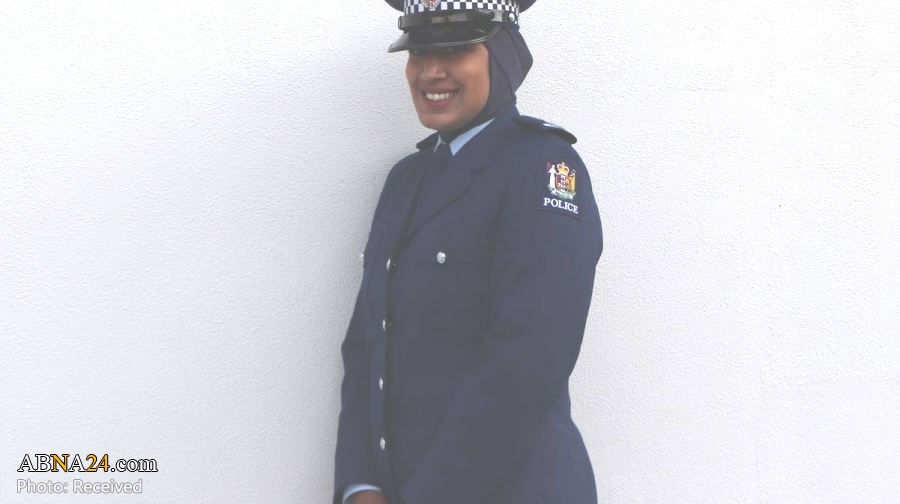AhlulBayt News Agency (ABNA): When the Christchurch terror attack happened Zeena Ali was inspired to join the police to help her Muslim community.
And this week she will not only graduate as a police officer, but will become the first in New Zealand to don a police-issued hijab as part of her uniform.
Ali, 30, even worked with police to design a garment that is both functional for her new role and considerate of her religion.
She told the Herald the design process started even before she started at Police College, with her trialling various materials and styles and offering recommendations and improvements.
Further tweaks and changes were made before the recruit course started so she had the required gear - and she even has a version to wear for graduation.
Ali will be posted in the Tāmaki Makaurau area and is excited to get out on the beat.
"It feels great to be able to go out and show the New Zealand Police hijab as part of my uniform," she said.
"I think that seeing it, more Muslim women will want to join as well."
Ali remembers the moment she decided to shift her career from customer service to law enforcement.
"One of the security guards I worked with was going to join the police and she asked me to help her," she said.
"As I started that process the Christchurch terror attack happened and that's when I realised more Muslim women were needed in the police, to go and support people with things like this.
"If I had joined the police earlier I would have been down there to help."
Ali was born in Fiji and moved to New Zealand with her family when she was a child.
She said she was proud to represent the Muslim community - particularly women - and hoped to inspire others to join the police and help broaden the demographic of the front line.
Having a police-branded hijab would mean women who may not have previously considered policing because they were not sure of how the role would incorporate their religion or culture.
"It's great - the police went out of their way to make sure the hijab I have on meets health and safety requirements as well as my own personal needs," she explained.
"They worked closely with the Massey Design School, they came and visited me and we made tweaks to the hijab.
"I am proud to wear it and I hope other people out there will be proud of me as well."
Ali said she appreciated police considering her personal needs - both at college and in her role going forward.
"At college they had a prayer room and halal meals," she said.
Valuing diversity is one of the six core values for police - alongside professionalism, respect, integrity, empathy and commitment to Maori and the Treaty of Waitangi.
"We recognise the value different perspectives and experiences bring to making us better at what we do," police said.
"We need people with a range of skills, backgrounds and experience levels - diversity is essential so that we can effectively serve the needs of New Zealand's communities now and in the future."
Police said there were certain qualities and skills they look for during the recruitment process as they worked to build a "high-performance culture, where different perspectives are valued'.
"By reflecting the communities we serve and appreciating different thinking, we aim to achieve better problem-solving and results."
Ali's wing, who graduate tomorrow, was ""highly diverse" and female recruits outnumbered their male colleagues.
Of the graduates, 51.3 per cent were females - and 48.7 per cent of the graduates were ethnicities other than European.
Maori officers make up 25 per cent of the wing.
"I think it's great," Ali told the Herald.
"And we need more Muslim women to help in the community, most of them are too scared to talk to the police and would probably shut the front door if a man turned up to talk to them.
"If we have more women turning up, a more diverse front line, then we can reduce more crime."
In 2008 police introduced a turban into the uniform and Nelson Constable Jagmohan Malhi became the first officer to wear it on duty.
Until then he had to forgo the turban on duty, even though it is considered an important part of his Sikh faith.
/129
source : Otago Daily Times
Wednesday
11 November 2020
10:33:22 AM
1085337

When the Christchurch terror attack happened Zeena Ali was inspired to join the police to help her Muslim community.
